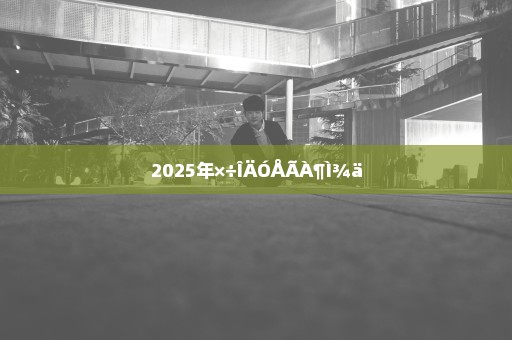单词should和could的具体区别
could意思和can一样,是can的过去时。另外,用于Could you please....的句型,表示建议别人做某事。 should 1.将要shall的过去时 ,用法同shall 2.“应该”, 主语随便是第一二三人称,都可以,较常用。 could/should都表示建议的时候, could似乎口气没那么强, 你可以这么做啊, 你可以那么做啊. should口气要强, 好像在说, 你应该这么做, 你应该那么做. should的用法 表示“应该,应当” Should I wear a coat?我要穿大衣吗? 表示“可能,该(=will probably) ” He should arrive soon他可能很快就到了。 The train should have already left. 火车大概已经走了。 表示“万一” If it should rain tomorrow, don’t expect me. 万一明天下雨,就不要等我了。 表示“竟然” It’s strange that he should be late. 真奇怪,他竟会迟到。 should加完成式:should have done表示“本应该做某事,但事实上却没有做”;shouldn’t have done表示“本不该做某事,但事实上却做了”。如: You should have got up earlier. 你本应该早点起的。 You shouldn’t have told him about it. 你本不该把这件事告诉他的。 should与ought to的比较 除表示“万一”“竟然”等只能用should外,表示“应该,应当”“可能”等,两者可互换,只是ought to的语气稍重。如:You ought to/should work harder than that. 你应当更努力地工作 She ought to/should finish it by next week. 下星期她可能完成了。 You ought to/should have told him about it earlier. 你本应该早点把这件事告诉他的 You oughtn’t to/shouldn’t have wasted time like that. 你本不该像那样浪费时间的。 should强调主观看法,而ought to强调客观要求。如: We ought to go and see my mother in hospital tomorrow, but I don’t think we will. 我们按理应当在明天去看看住院的母亲的,但我主认为我们不会去。 在公告、须知或条例中,出于礼貌,常用should。如: You shouldn’t run alongside the swimming pool. 不准在游泳池边奔跑。 在虚拟语气中只能用should。如:He suggested that I should go there. 他建议我去那里。 注意ought to的否定式与疑问式。如: You ought not to do it. 你不应该做此事。 can和could的用法 表示能力:能,能够,会 He could swim when he was five. 他五岁时就会游泳了。 表示推测:可能,会 I think the work can be completed ahead of time. 我认为这项工作能提前完成。 注:表示推测时,could不是过去式,只是语气更委婉;若是推测已发生的事或过去的情况,用can/could have加过去分词。如: Today is Sunday. He can’t/couldn’t be at school. 今天是星期天。他不可能在学校里。 表示“有时也会” It can be quite windy there, especially in spring. 那里有时容易刮风,特别在春季。 表示允许:可以 (口语中常代替may) You can first lend me one book this time. 这次你可以先借给我一本书。 注意: 表示允许别人做某事只能用can,不能用could。 can’t和mustn’t一样,都可表示“不准,不允许”。 表示请求:可以 注意:could不是过去式,只是语气较can更委婉,注意在回答中不可用could。如: —Could I have the television on?我可以开电视看吗? —Yes, you can. / No, you can’t. 可以。/不可以。
should的用法
表示“应该,应当”
Should I wear a coat?我要穿大衣吗?
表示“可能,该(=will probably) ”
He should arrive soon他可能很快就到了.
The train should have already left.火车大概已经走了.
表示“万一”
If it should rain tomorrow,don’t expect me.万一明天下雨,就不要等我了.
表示“竟然”
It’s strange that he should be late.真奇怪,他竟会迟到.
should加完成式:should have done表示“本应该做某事,但事实上却没有做”;shouldn’t have done表示“本不该做某事,但事实上却做了”.如:
You should have got up earlier.你本应该早点起的.
You shouldn’t have told him about it.你本不该把这件事告诉他的.
should与ought to的比较
除表示“万一”“竟然”等只能用should外,表示“应该,应当”“可能”等,两者可互换,只是ought to的语气稍重.如:You ought to/should work harder than that.你应当更努力地工作
She ought to/should finish it by next week.下星期她可能完成了.
You ought to/should have told him about it earlier.你本应该早点把这件事告诉他的
You oughtn’t to/shouldn’t have wasted time like that.你本不该像那样浪费时间的.
should强调主观看法,而ought to强调客观要求.如:
We ought to go and see my mother in hospital tomorrow,but I don’t think we will.我们按理应当在明天去看看住院的母亲的,但我主认为我们不会去.
在公告、须知或条例中,出于礼貌,常用should.如:You shouldn’t run alongside the swimming pool.不准在游泳池边奔跑.
在虚拟语气中只能用should.如:He suggested that I should go there.他建议我去那里.
注意ought to的否定式与疑问式.如:
You ought not to do it.你不应该做此事.
can和could的用法
表示能力:能,能够,会
He could swim when he was five.他五岁时就会游泳了.
表示推测:可能,会
I think the work can be completed ahead of time.我认为这项工作能提前完成.
注:表示推测时,could不是过去式,只是语气更委婉;若是推测已发生的事或过去的情况,用can/could have加过去分词.如:
Today is Sunday.He can’t/couldn’t be at school.今天是星期天.他不可能在学校里.
表示“有时也会”
It can be quite windy there,especially in spring.那里有时容易刮风,特别在春季.
表示允许:可以 (口语中常代替may)
You can first lend me one book this time.这次你可以先借给我一本书.
注意:
表示允许别人做某事只能用can,不能用could.
can’t和mustn’t一样,都可表示“不准,不允许”.
表示请求:可以
注意:could不是过去式,只是语气较can更委婉,注意在回答中不可用could.如:
—Could I have the television on?我可以开电视看吗?

—Yes,you can./ No,you can’t.可以./不可以.望采纳、E_shine专属.
鹏仔微信 15129739599 鹏仔QQ344225443 鹏仔前端 pjxi.com 共享博客 sharedbk.com
图片声明:本站部分配图来自网络。本站只作为美观性配图使用,无任何非法侵犯第三方意图,一切解释权归图片著作权方,本站不承担任何责任。如有恶意碰瓷者,必当奉陪到底严惩不贷!
 百科狗
百科狗



